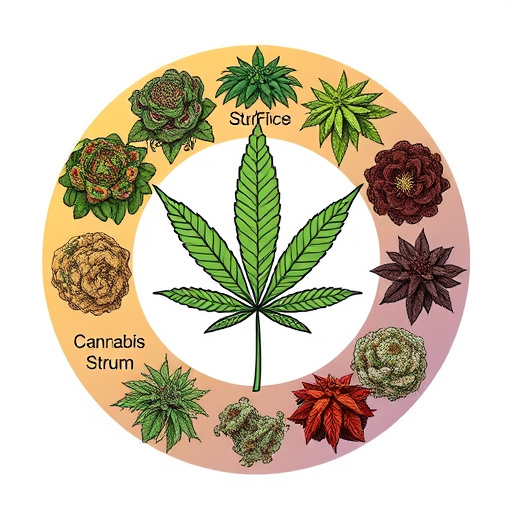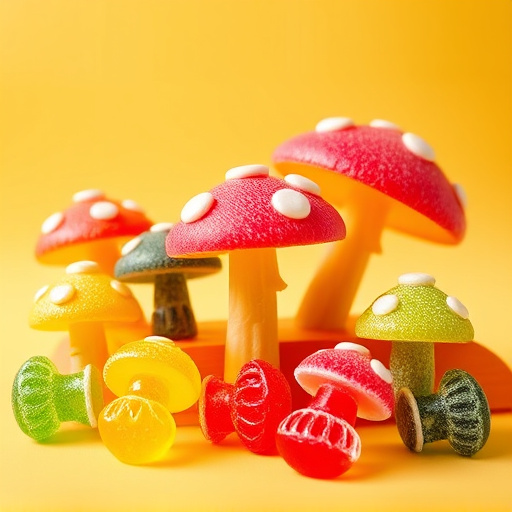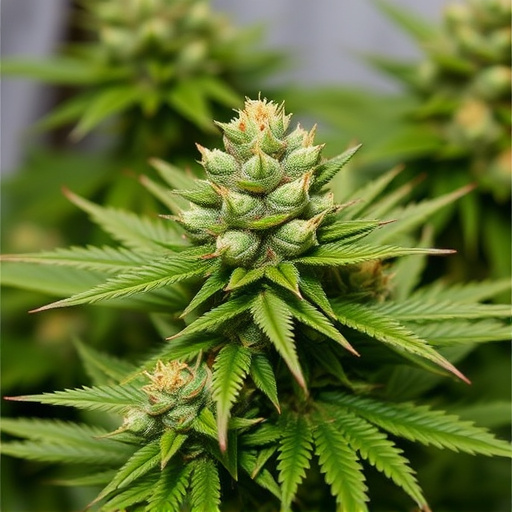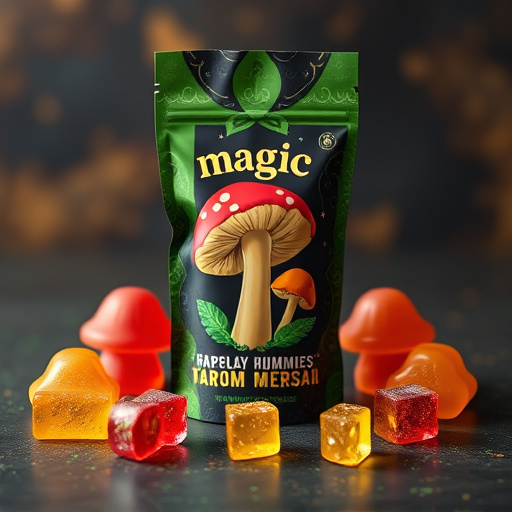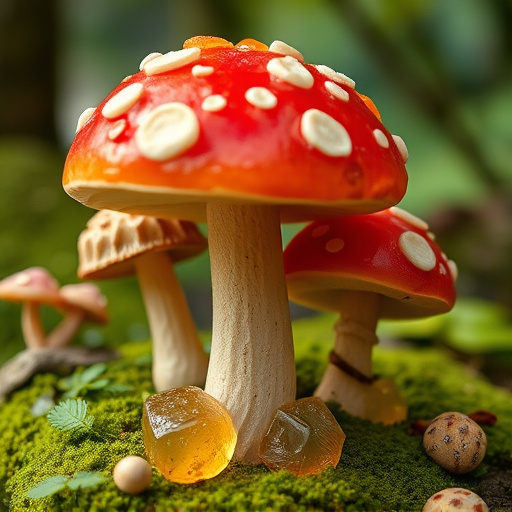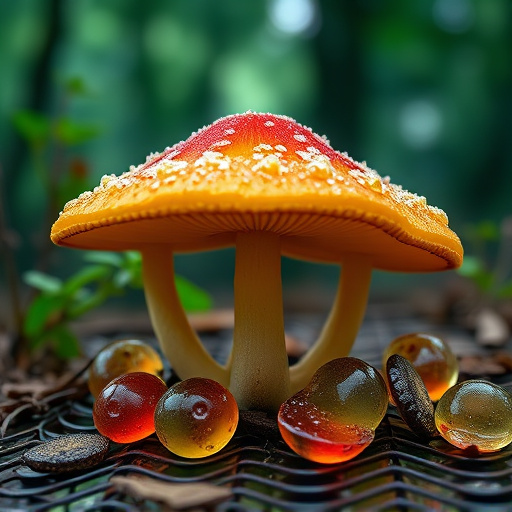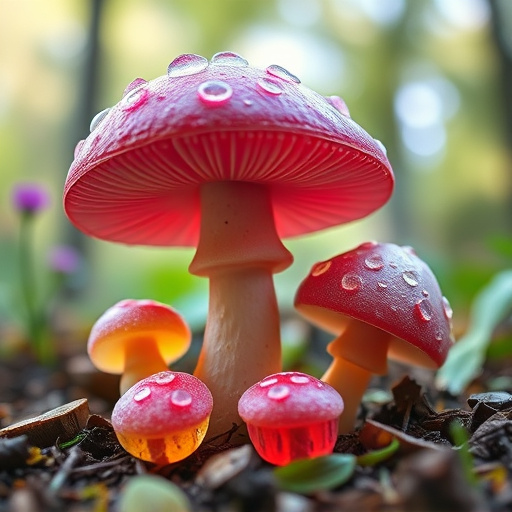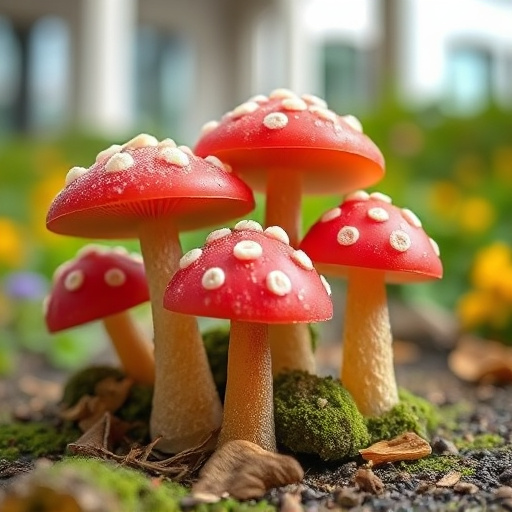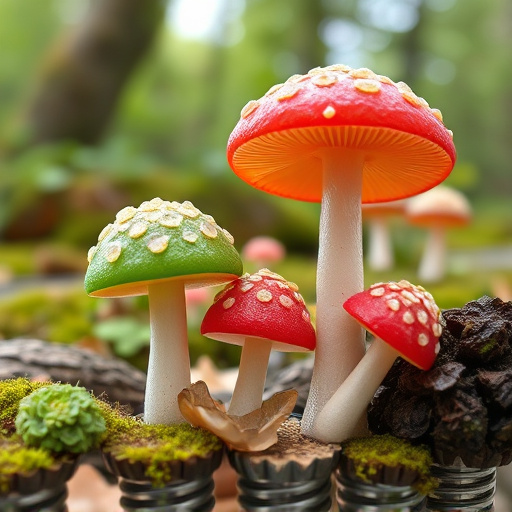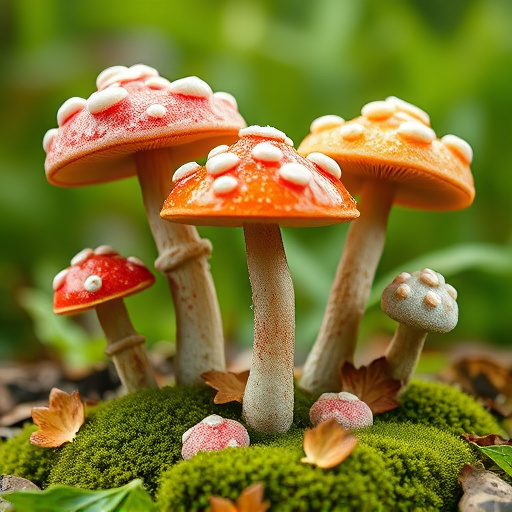"The Science Behind Magic Mushroom Gummies reveals how psilocybin and psilocin, natural compounds in specific mushrooms, induce altered states of consciousness and boost creativity after consumption. Current research highlights their therapeutic potential in treating anxiety, depression, and end-of-life care, promoting neuroplasticity. This modern approach introduces gummies for discreet, convenient, and precisely dosed intake, offering an attractive alternative to traditional methods while emphasizing responsible use for safe and beneficial experiences."
“Unveiling the potential of high-potency magic mushroom gummies: an innovative approach to psychotherapy. This article delves into the science behind these unique edibles, exploring the active compounds psilocybin and its profound effects on brain function. We examine gummies as a delivery method, highlighting benefits while considering safety aspects. From anxiety and depression relief to potential PTSD treatment, we discuss therapeutic applications and future research directions. Discover how the ancient wisdom of magic mushrooms is being embraced by modern science.”
- The Active Compounds: Psilocybin and Its Effects on the Brain
- Gummies as a Delivery Method: Benefits and Considerations
- Potential Therapeutic Applications and Future Research Directions
The Active Compounds: Psilocybin and Its Effects on the Brain
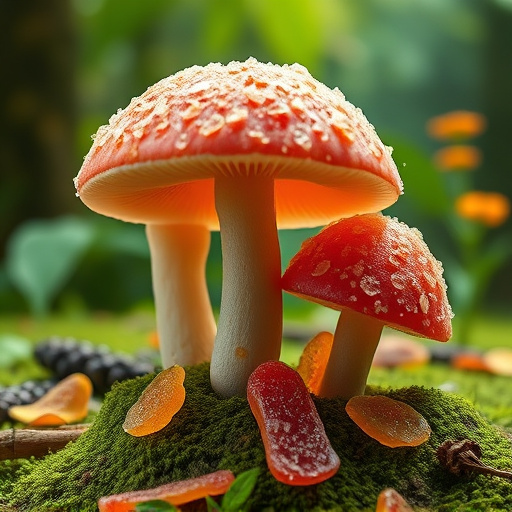
The science behind magic mushroom gummies centers around two key active compounds: psilocybin and psilocin, often collectively referred to as psychedelics. Psilocybin, the primary active ingredient, is a natural compound found in certain types of mushrooms known for their psychoactive properties. When consumed, psilocybin converts into psilocin inside the body, which interacts with serotonin receptors in the brain, leading to various effects on cognitive and perceptual functions.
Research has shown that psilocybin can induce altered states of consciousness, enhanced creativity, and profound emotional experiences. It may also have therapeutic benefits, including reduced anxiety, depression, and even potential applications in end-of-life care for terminally ill patients. The effects of psilocybin on the brain are complex and still being studied, with some studies suggesting it can promote neuroplasticity and open up new avenues for understanding consciousness and mental health treatments.
Gummies as a Delivery Method: Benefits and Considerations
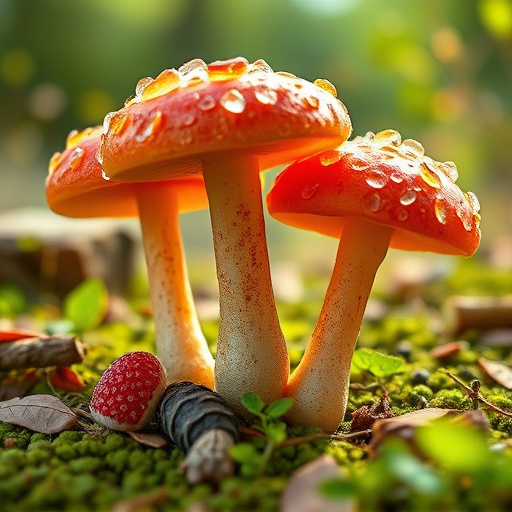
Gummies as a delivery method for high-potency magic mushrooms represent a modern twist on an ancient practice, combining the benefits of psychedelic therapy with contemporary preferences. This innovative approach leverages the tiny, easily consumable form factor of gummies to offer precise dosing and a more palatable experience compared to traditional methods. The science behind magic mushroom gummies involves extracting and concentrating active compounds from psilocybin mushrooms into a gummy base, ensuring consistent and measurable effects.
This method offers several advantages. First, it provides a more discreet and convenient way to consume psychedelic substances. Second, gummies can be crafted with precise dosages, allowing individuals to control their experience more effectively. Moreover, the sweet and chewy texture enhances palatability, making it an attractive alternative for those who find other consumption methods unappealing. However, as with any psychedelic substance, responsible use is paramount. Considering factors like dosage, strain characteristics, and individual tolerance is crucial to ensure a safe and beneficial experience.
Potential Therapeutic Applications and Future Research Directions
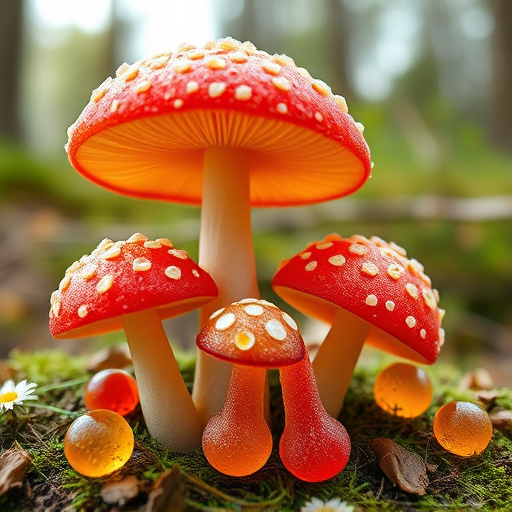
The science behind magic mushroom gummies reveals a promising avenue for therapeutic applications. Research suggests that psilocybin, the active compound in magic mushrooms, has potential to treat various mental health conditions such as depression, anxiety, and post-traumatic stress disorder (PTSD). Studies have shown that controlled doses of psilocybin can induce mystical experiences, leading to significant improvements in mood and reduced symptoms. As the legal status of psilocybin-containing products varies globally, further research is needed to explore their efficacy and safety in diverse populations.
Future research directions include investigating the neurobiological mechanisms underlying psilocybin’s therapeutic effects, optimizing delivery methods beyond gummies (such as oral pills or nasal sprays), and elucidating long-term outcomes. Additionally, clinical trials should focus on personalized dosing, patient selection criteria, and integration of psilocybin into conventional healthcare systems. The growing interest in psychedelic-assisted therapy indicates a promising future for magic mushroom gummies as innovative tools in mental health treatment.
The science behind magic mushroom gummies reveals a promising new avenue for therapeutic exploration. With psilocybin, the active compound in high-potency mushrooms, shown to have profound effects on brain function and mental health, gummy delivery offers a convenient and potentially more accessible way to harness these benefits. While further research is needed, the future of magic mushroom therapy looks bright, offering hope for innovative treatments using this natural resource.
